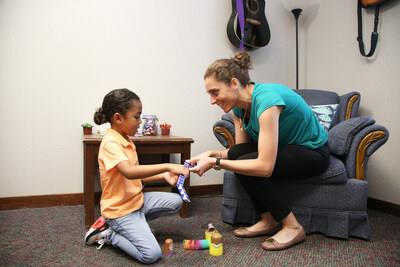
Altapointe Health: Building Resiliency In Children Through Healthy Adult Relationships
Listening and Connecting
Forming healthy relationships with children begins with genuinely listening and engaging with their interests, even when those interests may seem trivial or unimportant to adults.
"Every child comes home with some story or obsession they are interested in. It's important to become interested in those things to form a bond and share that interest together," said Harvey. "The more you listen to the small things, the more inclined your child will be to talk to you about the big things."
Consistent Boundaries and Role Modeling
Relationships also require clear boundaries.
"We still have to be their parent and not their friend. Boundaries must remain consistent. Bedtime, internet usage, TV time, and household chores should have clear expectations," noted Harvey.
Boundaries give children structure, helping them to feel secure and understand their limits.
Children mirror adult behaviors, so it's also crucial to model the behaviors you want to see in your child.
"If you have expectations about the tone your child uses and how they speak to you, you must use that same respectful tone. We can't yell at them and expect them not to yell back," advised Harvey.
Respecting Emotions
Understanding and respecting emotions-both your own and your child's-is essential. It's important to understand that children are going to experience a wide range of emotions as their brains develop and that it's normal for children to have big reactions.
"Our feelings are our internal boundaries. Anxiety and fear are natural responses, signaling caution," explained Harvey.
Adults should validate those emotions and encourage children to communicate their feelings.
"When they are feeling scared or anxious, we want them to come to us so we can talk through plans to manage those emotions effectively," added Harvey.
Open Communication
Social media and the constant digital connection represent another unique challenge. Children today have unprecedented 24/7 exposure to information-both accurate and misleading.
"We need to set boundaries around technology usage-time frames, limits, and rules," Harvey advised. "But we have to recognize that the way we see the world is slightly different than how they see it. Instead of just getting upset, having open communication about their online experiences can help us understand how they see things. And it opens the door for us to explain why something concerns us as an adult."
Ultimately, the goal is to create environments where children feel heard, supported, and loved.
"Building relationships is a big resiliency factor for kids. Healthy adult relationships can significantly contribute to helping make kids successful in life."
ABOUT ALTAPOINTE HEALTH
AltaPointe Health is a comprehensive behavioral healthcare system serving seven counties across Alabama. Each year, it provides more than 1 million hospital, outpatient, and residential services to over 40,000 individuals.
SOURCE AltaPointe Health Systems

Legal Disclaimer:
MENAFN provides the
information “as is” without warranty of any kind. We do not accept
any responsibility or liability for the accuracy, content, images,
videos, licenses, completeness, legality, or reliability of the information
contained in this article. If you have any complaints or copyright
issues related to this article, kindly contact the provider above.


















Comments
No comment